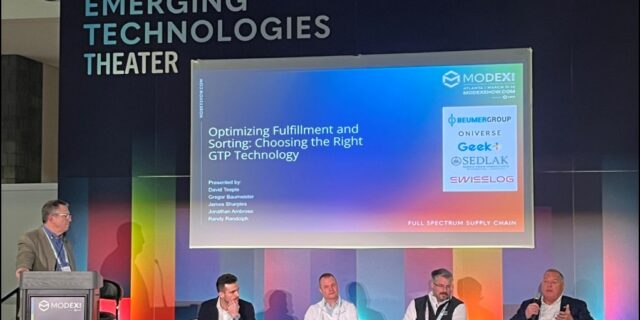Independent Logistics Consultants vs. Systems Integrators (Pt. 3)
February 10, 2014 By: Senior Management | Topics: Automation & Robotics, Facility & Operation Design, Material Handling Systems Solutions, Project Support & ManagementPART 3: Objectivity in System Design
For DC executives, using an independent logistics consultant versus a systems integrator is vital to the very set-up and running of an efficient and cost-effective distribution center. Three very critical factors differentiate the methodologies of independent logistics consultants from systems integrators: a) objectivity in system design; b) focus on the level of automation; and c) change management.
When designing a multi-million-dollar distribution center, few factors could be more important than ensuring that the DC’s executive team has the opportunity to review and select any and all material handling system options available.
The methodology of independent logistics consultants permits an objective examination of any material handling systems that may be viable to a new distribution center’s operation. This is critical to selecting the right equipment that will meet the requirements for a DC’s throughput and efficiency, and expected return on investment.
Consultants also draw on solutions from many industries, thus providing a broad perspective on potential solutions that might otherwise not be considered.
But this breadth of design flexibility is not offered by systems integrators. Closely aligned with specific equipment manufacturers whose systems they routinely specify, systems integrators typically specify only a limited number of manufacturers’ equipment lines.
A systems integrator that has been retained by a company’s executive team will standardly present several system options. Because the integrator is using a limited universe of equipment manufacturers, the DC’s executives will be presented with design choices relative to what those manufacturers produce. Other system possibilities will most likely not make it to the executive planning table to be reviewed.
Because systems integrators carve out a niche in specific industries, they are limited in bringing solutions relative to a particular industry to the table. The designs presented are typically modified stock designs that have been used many times over in other DCs. But, these stock system choices presented may not be the best material handling options or the most cost-efficient for the needs of the DC being planned.
The capability for objectivity can be further limited with the equipment bidding process. Because the breadth of manufacturers associated with the systems integrator does not include other possible relevant systems, when the bidding process is instituted it is inherently not representative of a realistically competent universe of manufacturers.
Objectivity of system design without the constraint of single-source limitations is the best guarantee that the optimum material handling systems will be put in place to achieve the operational and financial needs of the new distribution center.
We hope that you find the insights contained in this series helpful to your business. If there is any way we can be of assistance with your distribution or facility design needs, please feel free to contact us by filling out the form below.





